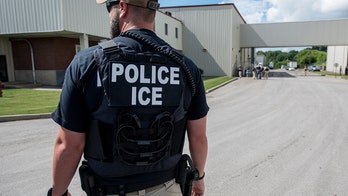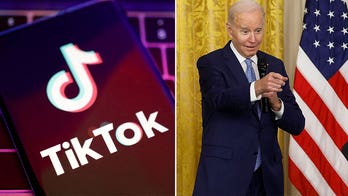Larry Kudlow sees 'glimmers of hope' and 'growth' for US economy amid pandemic
White House economic adviser Larry Kudlow weighs in on reopening of U.S. economy in a post-pandemic country.
White House officials said Tuesday that President Donald Trump is “displeased” with China’s latest attempt to curb Hong Kong autonomy with a new national security law.
"He’s displeased with China’s efforts and ... it’s hard to see how Hong Kong can remain a financial hub if China takes over," press secretary Kayleigh McEnany told reporters as a direct message from the president Tuesday.
Chinese government officials announced last week that as a matter of national security, the National People’s Congress (NPC) will review legislation that would criminalize anti-government movements, like the recent years-long pro-democracy protests.
CHINESE STATE-RUN MEDIA CALL US THREATS OVER HONG KONG 'NOTHINGBURGER'
Hong Kong has enjoyed relative autonomy from mainland China since being handed over from the British as a former colony, in 1997.
The Chinese government is attempting to enforce Article 23 of the Basic Law which says that Hong Kong will “enact laws on its own to prohibit any act of treason, secession, sedition [or] subversion against the Central People's Government.”
No such law has ever been passed. China tried once before in 2003 to enforce Article 23, but the legislation was dropped after the largest protest the city had even seen.
CHINA PROPOSES CONTROVERSIAL HONG KONG 'SECURITY' LAW
Protests again erupted in Hong Kong Sunday.
The White House’s economic adviser Larry Kudlow told Fox Business Tuesday that China’s attempt at “taking over Hong Kong's national security parameters and judgments was a mistake.”
"They're supposed to have one country and two systems, and now we're seeing an attempt, I think, to have one country and only one system,” Kudlow said.
CLICK HERE FOR THE FOX NEWS APP
U.S.-China relations have been strained for several weeks due to China’ initial handling of the coronavirus.
Kudlow said Tuesday that the United States will now provide economic aid to help companies move their production out of China.
“We will do what we can for full expensing and pay the cost of moving if they return their supply chains and their production to the United States.”





